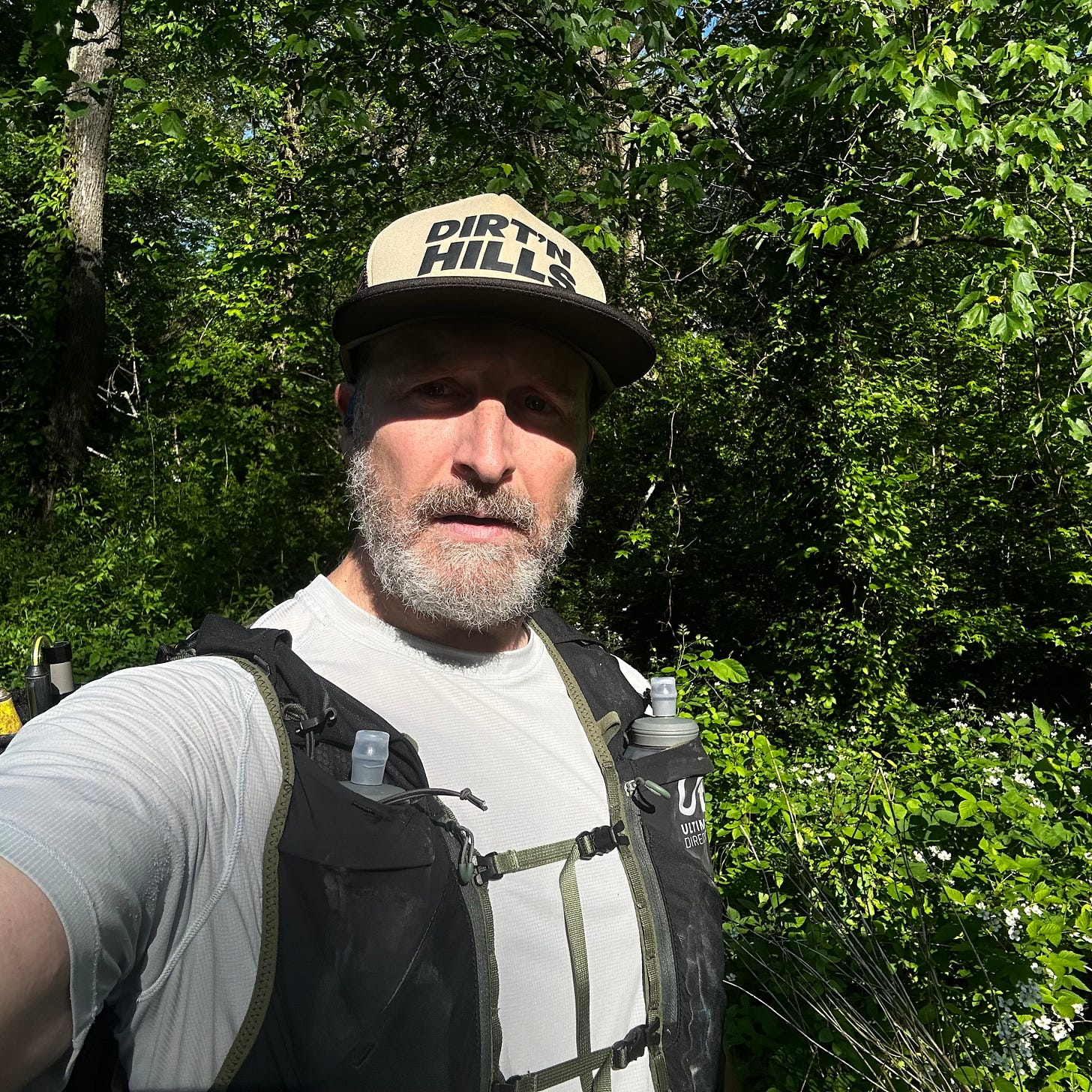The starting line of my first 50-mile ultramarathon hummed with nervous energy. Runners ready, eyeing the five 10-mile loops ahead. I'd completed a 50K the year before and trained well for this moment. The 50-miler felt like my natural next step.
The first two loops unfolded as planned. My legs felt steady beneath me, my breathing controlled. I hit each aid station more or less on schedule. But as I started the third loop—past mile 20—the race dealt me a different hand.
It wasn't the wall I'd heard about. No dramatic collapse or crippling fatigue. Instead, my pace began to drift. That spark of energy I'd carried through the first 20 miles began to fade.
The math became unavoidable. At my current pace, I'd miss the cutoff. The forest around me felt heavier somehow, the trail stretching endlessly ahead of me. My body whispered what my mind didn't want to hear: Simon was right, a 50K and a 50-miler weren't just 19 miles apart—they were leagues apart.
Kenny Rogers' voice drifted through my head: "You gotta know when to fold 'em, know when to walk away."
The Cards on the Table
That third loop laid everything bare. Each tick of my watch brought me closer to a cutoff I couldn't outrun. My body wasn't rebelling—it was sending quiet signals I'd learned to recognize—the subtle tightening in my muscles. The way my usual rhythm felt was just slightly off.
Pride pushed hard. I'd trained for 50 miles. I'd told everyone about this race. The voice in my head screamed to hold 'em, to fight for those final 19 miles I'd envisioned.
But The Gambler's wisdom cut through the noise. Sometimes folding isn't quitting—it's the smartest play you can make.
At the end of that loop, I found the race official. "I'm dropping to the 50K," I said. Their nod carried no judgment, only recognition. They'd seen this decision before. It reframed everything—not as failure, but as a runner making the calculated choice to walk away while I still could. Alas, no medal for me this day.
Finding the Silver Lining
The 50K finish line brought relief. As I sat in my car afterward, replaying that third loop, Kenny Rogers' chorus became my soundtrack. Folding 'em had meant the hand wasn’t winnable.
However, what made it sting less was that I'd slashed nearly two hours off my previous year's 50K time. Two hours. The training had worked—just not for the distance I'd planned.
The race revealed something crucial about 50-milers. They demand either intimate knowledge of the course's complexity, every climb and twist, or a training intensity I hadn't quite reached. My body hadn't failed me. It had simply shown me when to step back from a losing hand.
The Long Game
Every runner faces this moment. The cutoff clock isn't your enemy—it's the dealer, showing you exactly what cards you're holding. My slowing pace wasn't weakness; it was information.
Dropping to the 50K wasn't surrender. It was choosing to walk away with my strength intact, setting myself up for future races. That two-hour improvement? It's a victory I carry proudly, even with the 50-miler still waiting.
Trust your gut when it says to step back. Sometimes the boldest move isn't pushing forward—it's playing the long game.
Looking forward, I don’t know if a 50-miler is in the cards for me, though; if I do make another run, that third loop stands as a reminder. The Gambler's wisdom echoes: know when to fold 'em. My faster 50K time proves that the training was effective. Next time, I'll either know the technicality of the course, or I'll arrive with legs trained for the full distance.
Retreat isn't defeat. It's knowing when to fold for a better hand next time.
What's your experience with race-day decisions? Share your thoughts in the comments below—every runner has a story about knowing when to walk away.



